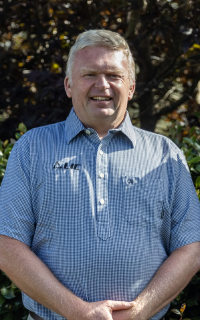When it comes to selecting beef sires for dairy, our breeding team identify sires whose trait information indicates they are genetically superior in calving ease, have a moderate gestation length, and have lower-than-average birth weights.
These selection decisions are largely based on Estimated Breeding Values (EBVs) for these traits – with most emphasis placed on calving ease and birth weight.
In general, we select sires that will not increase gestation length above that of the average New Zealand dairy cow (282 days). Both the Hereford and the Angus SGL offerings in our beef catalogue consist of sires that sit comfortably in the top 1% of their breed for gestation length.
Once the bulls enter widespread use, our genetics product and sire selection teams review MINDA data to monitor trends in calving ease and gestation length for sires.

In the Beef+Lamb NZ Dairy Beef Progeny Test, there is a wealth of data on how the progeny of individual beef sires perform when mated over dairy crossbred cows.
More than one-third of calves entering the beef industry each year were born on dairy farms. For the rearer and finisher, beef crossed over dairy cattle need to grow well, finish before their second winter, and yield.
Other than traits of dairy importance, sires with superior EBVs for weaning and yearling weight, carcass weight, eye muscle area (an indicator of yield), and intramuscular fat (or marbling) are our main selection criteria. Sires from Rissington Cattle Company have feed efficiency data, so we are able to select individuals that are genetically superior for this trait.
The ability of sires to colour-mark beef crossed over dairy calves is also considered by our breeding team.
While the genetics behind coat colour of beef crossed over dairy animals is notoriously complicated, the Speckle Park, Belgian Blue, and Murray Grey sires were selected with coat colour in mind (in addition to their performance).
When looking at animal welfare and health, we put additional selection pressure on Polled sires within the beef offering.
Less than a handful of beef sires in this year’s LIC Genetics Catalogue are heterozygous polled (i.e., the sires have one copy of the horned gene). In future, we will target a 100% homozygous polled for our genetics catalogue.




